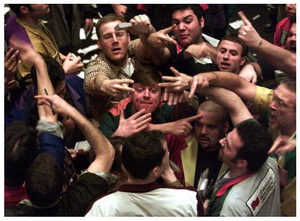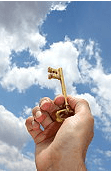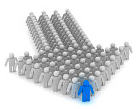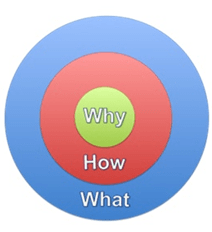If you get the culture right, then most of the other stuff follows. -Tony Hsieh
 I’ve been on large enterprise teams and lean, startup teams. Worked with for-profit companies and nonprofit organizations. There’s been times where everything felt right and times where everything was a challenge.
I’ve been on large enterprise teams and lean, startup teams. Worked with for-profit companies and nonprofit organizations. There’s been times where everything felt right and times where everything was a challenge.
Creating great products, providing premier customer service and delivering results all start with one thing: culture.
 Myself and a few others recently founded a startup to change the way companies spend money, manage resources and deliver social impact. When a workforce can view their financial footprint, easily remove or repurpose what they no longer need and allocate a portion of the money saved to charity, companies become cost focused communities filled with people who care.
Myself and a few others recently founded a startup to change the way companies spend money, manage resources and deliver social impact. When a workforce can view their financial footprint, easily remove or repurpose what they no longer need and allocate a portion of the money saved to charity, companies become cost focused communities filled with people who care.
Our products success is still an unknown, but the team culture makes our work feel like a mission. The smart, creative people I’ve partnered with are turing an idea into a working technology. Here’s the 5 culture traits that keep us shipping, measuring, framing and building:
- Keeping it flat. This is a startup – no hierarchy, no titles. Startups are a team sport, everyones ideas and contributions matter. You deliver as a team or you don’t deliver. The promotions are won as a group, not as an individual.
- Consistent and constant feedback. Openly discussing goals, progress and setbacks are critical, at the individual and group level. This creates and controls a healthy, productive environment.
- Small, achievable goals and big, lofty goals. Weekly, monthly and longterm goal setting with the ability to shift when needed is critical. Along with our startup I’m passionate about long distance trail running. Running a 100 mile race requires crossing a dozen aid stations and check-ins before reaching the finish line. Same applies for shipping a new product. Doing regular check-ins while recognizing the small, measurable successes is all part of delivering a viable product.
 Working out loud. Sharing our work with others has allowed us to grow our network,
Working out loud. Sharing our work with others has allowed us to grow our network,
crowdsource ideas and build meaningful relationships. By doing so we’ve connected with entrepreneurial thought leaders at Foundry Group, Techstars and MergeLane. The advice and benefits we’ve received are unquantifiable. I’m encouraged not just when I’m told to “keep going!” but also when someone raises a new problem to solve or presents a different approach for thought.- Celebrating with one another, not over each other. Collectively, as a team we feel the ups and downs, it’s part of the startup journey. When a new plugin, design or release has gone well, we celebrate. If it was easy it’d already be done, it’s important to acknowledge the wins together.

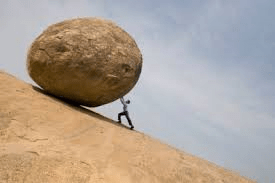 Turning an idea or concept into something tangible is not easy. There’s challenge in experimentation, building awareness, overcoming barriers and finding the right ingredients to make it all work. Some things stick, some things are lessons along the way. A challenge today could be a lesson that leads to success tomorrow. Find joy in the challenge.
Turning an idea or concept into something tangible is not easy. There’s challenge in experimentation, building awareness, overcoming barriers and finding the right ingredients to make it all work. Some things stick, some things are lessons along the way. A challenge today could be a lesson that leads to success tomorrow. Find joy in the challenge.
